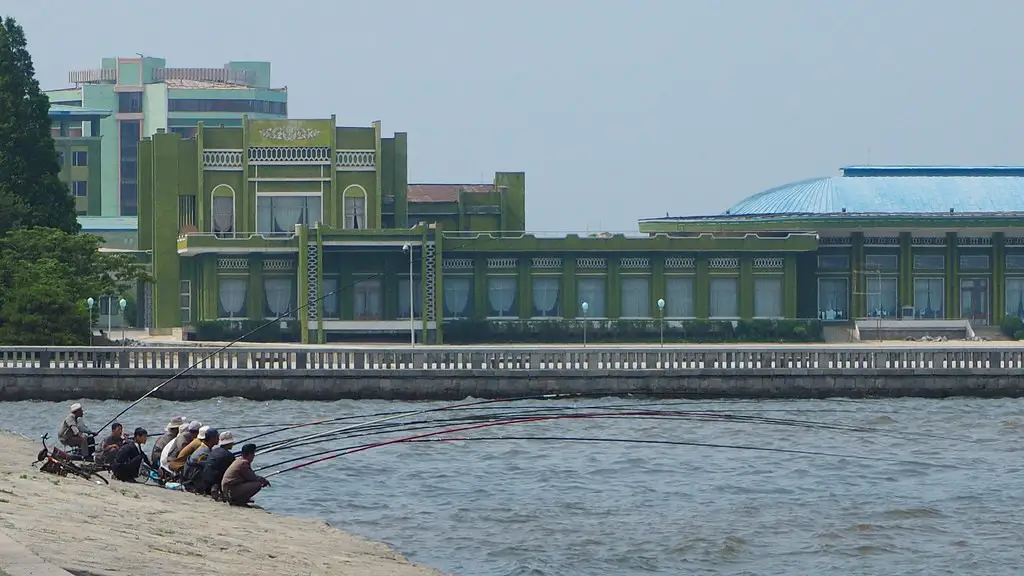1. Assessing the Situation
North Korea has been a thorn in the side of the international community since the country’s inception in 1948. With its aggressive rhetoric, controversial nuclear programs and human rights abuses, it has become increasingly difficult to ignore the nation’s actions. The United Nations has imposed economic sanctions, and the world has tried diplomatic negotiations to no avail. The question remains: what can be done about North Korea and its leader, Kim Jong Un?
2. Understanding Kim Jong Un’s Intentions
The answer to this urgent question starts with an understanding of Kim Jong Un’s intentions. While it is difficult to assess the motivations of an unpredictable and highly reclusive leader, analysts have speculated that the country’s aggressive posturing is part of a larger strategy of survival. Kim Jong Un believes that the only way to guarantee the North Korean regime’s longevity is to develop nuclear capability and build a formidable military presence.
3. The Role of China
The situation is further complicated by North Korea’s close relationship with China, a powerful ally that has provided financial and military support throughout the years. Part of Kim’s strategy is to minimize the impact of international sanctions, something that China’s support is instrumental in achieving. As such, any viable solution needs to involve China in the negotiations.
4. Keeping Sanctions In Place
Keeping sanctions in place has been one of the most effective ways of trying to contain the North Korean nuclear ambitions. Sanctions have made it more difficult for them to acquire resources and funding for their nuclear program and international pressure has been mounting on Kim Jong Un to accept negotiations. Of course, North Korea is a sovereign nation, and can reject any terms it deems unfair or inadequate.
5. Military Intervention
Military intervention is without question the most dangerous option for resolving the crisis. Using a peaceful means to negotiate with Kim Jong Un is of the utmost importance. Yet, should all negotiations fail, the only viable option might be direct military action. Though it would result in devastating losses, it might be the only way to prevent a nuclear conflict in an unstable region of the world.
6. Exploring Diplomatic Solutions
Despite the urgency of the situation, an all-out military intervention is not the only viable solution. Existing diplomatic efforts have been effective in some cases, and future negotiations could still bear fruit. Team efforts by the United Nations and other multilateral organizations are a promising starting point, but more engagement from major players like China and the United States will be necessary in order to reach a viable agreement with North Korea.
7. The United States’ Role
The United States has a fundamental role in reaching an agreement with North Korea. The US is the most powerful nation in the world, and its influence in the region could be essential in finding a diplomatic solution to the crisis. However, the US must make sure to use its influence responsibly and avoid escalating tensions with its rhetoric.
8. International Cooperation
International collaboration on the issue of North Korea is paramount. Between negotiations aimed at pressuring Kim Jong Un to accept a diplomatic solution and sanctions limiting access to resources, many countries are taking action to de-escalate the situation. Cooperation between international organizations such as the UN, individual countries and NGOs promises to be the most successful way of addressing the North Korea issue.
9. The Need for Education
Educating the public about the delicate nature of the North Korea situation is paramount in ensuring an effective and sustainable approach. Awareness-raising campaigns around topics such as nuclear disarmament, human rights abuses and the potential of military intervention could help to expand public understanding and shape attitudes about the North Korea issue.
10.Working Towards a Peaceful Solution
The situation in North Korea is complex and no single solution can be expected to resolve the situation. However, the international community has a responsibility to continue working towards a peaceful resolution. Ongoing diplomatic efforts and the imposition of economic sanctions have been effective in the past and could still be beneficial today. Education and collaboration are also necessary components in a successful, long-term resolution. No matter what the solution may be, it is essential that we continue to pursue a path that avoids unnecessary violence and loss of life.
11. Exploring Creative Economic Solutions
An economic solution could be just the thing to bring North Korea to the negotiating table. The country’s economy is heavily reliant on international trade and investment, so applying more pressure on these areas could force the government to engage with other nations and accept a diplomatic solution. Countries like China, South Korea and Japan could explore ways of cutting off North Korea’s access to resources, investments, and external markets.
12. Improving Human Rights
Improving North Korea’s human rights practices would be a key factor in working towards a peaceful resolution. North Korea is one of the most oppressive states in the world and the international community has a responsibility to take action to protect the human rights of those living in the country. The UN Security Council and other multilateral organizations have an important role to play in pressuring the North Korean government to improve its human rights practices.
13. Promoting Dialogue
The international community must also promote dialogue between nations involved in the conflict in order to encourage talks. Up to this point, conversations between South Korea and North Korea have been almost non-existent, making it extremely difficult to find a peaceful resolution. However, with both sides willing to engage in meaningful dialogue, there is potential for a breakthrough. The US and China can play an important role in this process by putting pressure on both sides to participate in talks and offering support for the dialogue.
14. Reaching a Sustainable Resolution
At the end of the day, finding a sustainable resolution to the North Korea crisis will require creativity, collaboration and most importantly, persistence. The international community must continue to explore all available options, including creative economic solutions, improved human rights and meaningful dialogue. Pressure from multiple angles can be effective in bringing Kim Jong Un to the negotiating table and working towards a peaceful resolution. Only by leveraging its collective strength can the international community truly put an end to the North Korea conflict.



